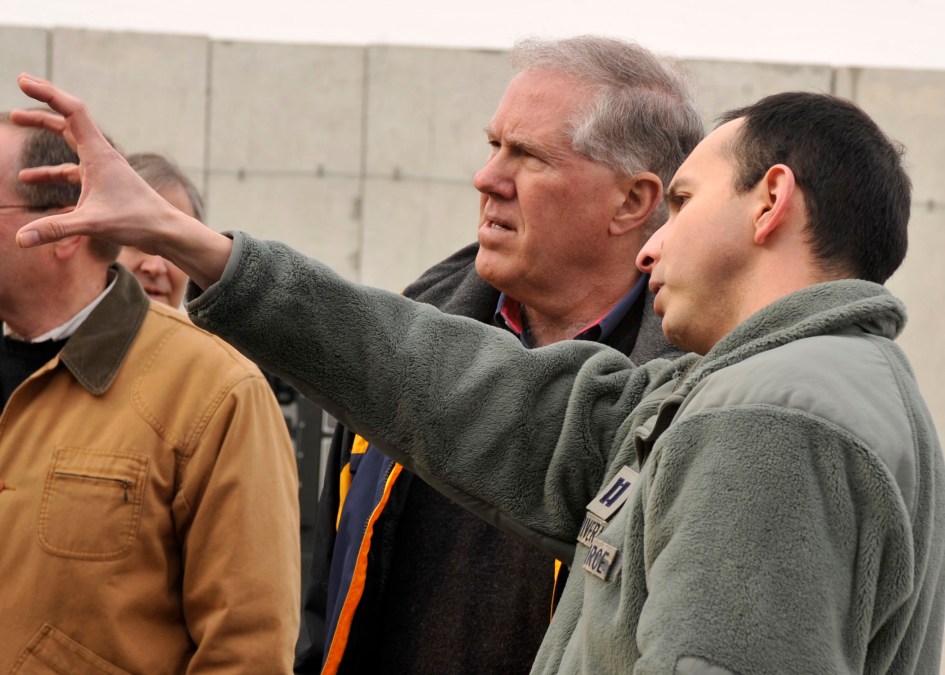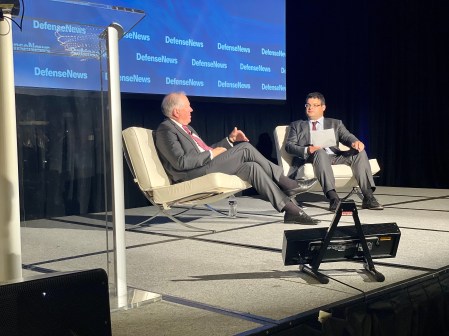New Air Force secretary voices skepticism over Internet of Things program

The Air Force’s new secretary, Frank Kendall, has cast doubt on the future of the Advanced Battle Management System (ABMS), the service’s Internet of Things program.
The service should move its focus from experimental capabilities towards technology that can be used in battle in the near future, Kendall told Defense News in an interview. The comments come after Congress slashed the Air Force’s requested $300 million in fiscal 2021 to an enacted $150 million.
“I don’t think we’ve thought thoroughly enough about where that type of technology can have the most impact and how to get there as quickly as we can,” he said. “I want to emphasize fielded, meaningful military capability, not just a demonstration that you show what cool thing you could do, but real capability in the hands of operators.”
An Air Force official told FedScoop that no changes have been ordered yet to the program. It is typical for new service leaders to review programs started under previous administrations.
ABMS is the Air Force’s contribution to Joint All Domain Command and Control (JADC2), the military’s framework of fighting in a networked battlefield where all sensors can be linked and all data shared. ABMS is widely seen as the farthest along in that missions of connecting everything, like linking data between planes mid-flight. The Navy and Army are developing their own programs to test the JADC2 concept.
Kendall was sworn in to office and the top civilian for the Air and Space Force July 28. He previously served as the undersecretary for acquisition, technology and logistics in the Obama administration.
ABMS’s development was concentrated in demonstrations where the Air Force brought together a host of emerging tech and tested it out in battlefield scenarios. Kendall’s comments suggest that may change and a sharper focus on tech that be fielded in the near term would be the priority. The Air Force already had to scale back its schedule of demonstrations to only two this year following Congress’s fiscal 2021 cuts to the program.
Kendall did not say if the demonstrations would be discontinued all together or what impacts could happen to the program, which is housed in the Rapid Capabilities Office.
“I want to focus it more on specific operational return on investment,” Frank Kendall told Defense News. “Where do we get the most improvement in performance operationally in the battlefield, for investments in that type of technology?”






